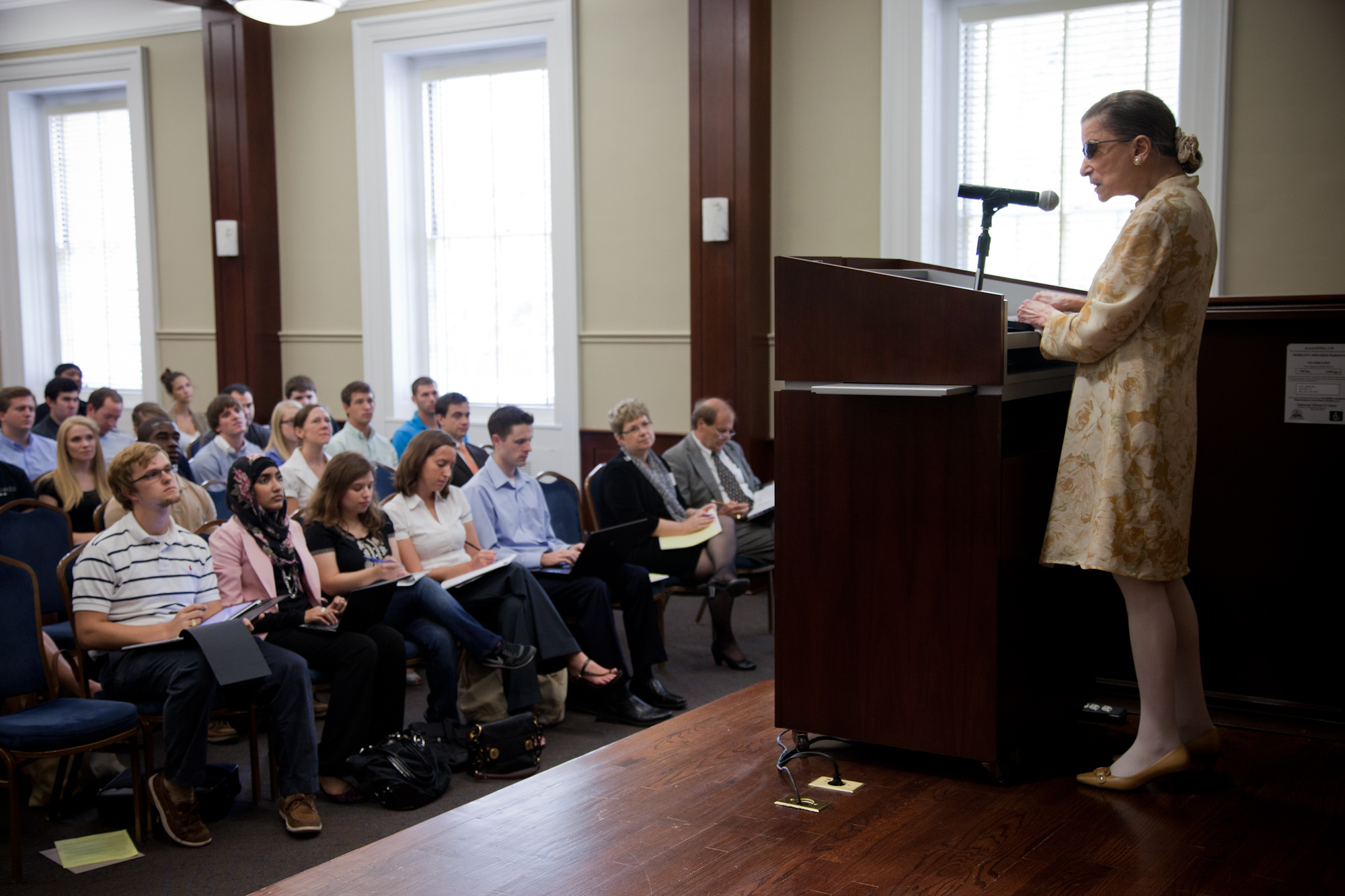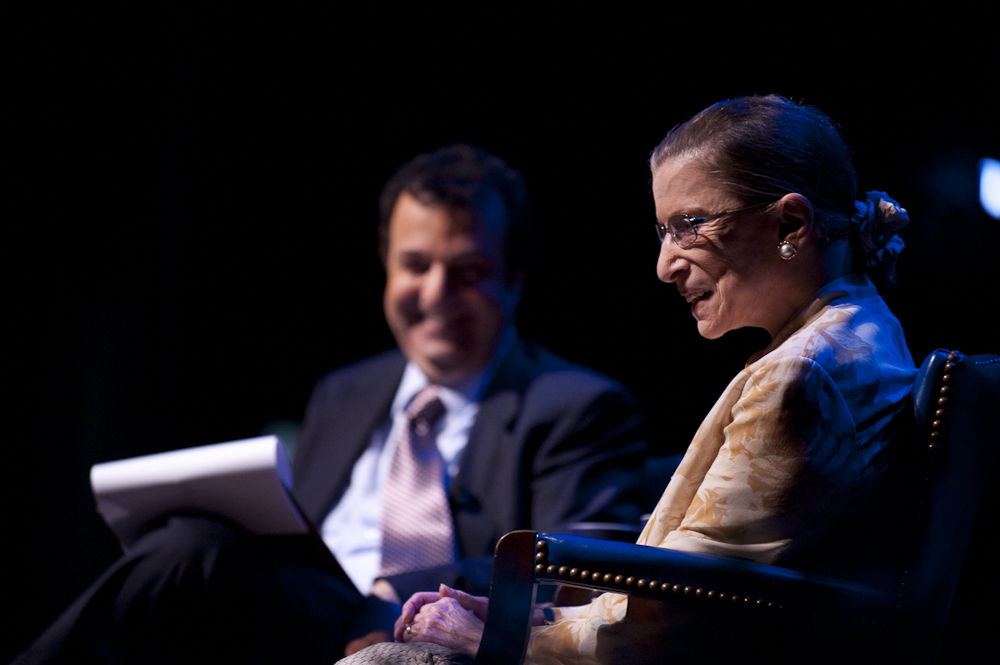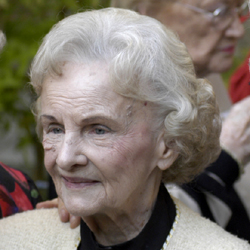Ruth Bader Ginsburg speaks at SMU
Supreme Court Justice Ruth Bader Ginsburg said Monday at SMU that the Supreme Court confirmation process has become too partisan.

By JAMIE STENGLE
The Associated Press
U.S. Supreme Court Justice Ruth Bader Ginsburg said Monday that the confirmation process has become much more partisan and that she probably never would have made it to the high court under the current climate.
 Justice Ginsburg speaks with an SMU law class. |
Ginsburg was appointed by President Bill Clinton to the Supreme Court in 1993. At the time, she became the second woman to take a seat on the high court. She is now one of three.
During a question-and-answer format with the law school's dean, Ginsburg touched on subjects ranging from what it was like to be both a mother and a law school student to cases she worked on as an attorney to the toughest part of her job as a justice, which she said was considering death penalty cases.
Before her appointment to the Supreme Court, she served as a judge on the U.S. Court of Appeals for the District of Columbia Circuit, a spot she was appointed to in 1980. She has also been a law school professor and served as general counsel for the American Civil Liberties Union in addition to helping launch its Women's Rights Project.
Ginsburg said that to practice for her Senate confirmation hearings, White House staffers in mock hearings grilled her on her work for the ACLU. During those mock hearings she told them: "There's nothing you can do to get me to bad mouth the ACLU."
Such grilling, though, did not happen, she said. She was confirmed 96-3.
"Today, my ACLU connection would probably disqualify me," she said.
She said Clinton had hoped to have regular dinners with the nine justices, but that never happened.
"He was hit first with Paula Jones and then other things," she said.
Ginsburg called joining the court with the first woman ever to take a spot on the bench, Sandra Day O'Connor, "like having a big sister."
 Justice Ginsburg with SMU Law School Dean John B. Attanasio during a Q&A in SMU's McFarlin Auditorium. |
"The practice exams didn't seem that important anymore," she said.
Ginsburg, who at 78 is the oldest justice on the Supreme Court, attended Harvard Law School from 1956 to 1958 before transferring to Columbia Law School, where she graduated in 1959.
Ginsburg said that the first thing she does when she's about to consider a case is look at the opinions of the courts below.
"We're on the top of a very fine judicial system," she said.
Ginsburg took a moment at the beginning of the program to speak about the woman the lecture series was named for, the late Louise B. Raggio. Raggio was the first female assistant district attorney in Dallas County and was influential in passing the Texas Marital Property Act of 1967, which gave married women legal rights to their own property.
About The Louise B. Raggio Endowed Lecture Series
The Louise B. Raggio Endowed Lecture Series, hosted by SMU's Dedman School of Law, was established by Raggio’s friends and family to honor her tremendous accomplishments in advancing the legal rights of women in Texas and across the nation.
Louise B. RaggioRaggio, a 1952 graduate of the evening law program at SMU Dedman School of Law, is known and respected as a pioneer in marital and family rights. Her involvement in the Marital Property Act in 1967 brought Texas into the modern era. Raggio is credited with securing property rights for married women in Texas and with paving the way for women in every state to start their own businesses and gain equal access to credit.
As chair of the State Bar of Texas' Family Law Section, she spearheaded the Family Code project in 1979, making Texas the first state with a unified family code. For that effort, she received the State Bar of Texas' highest honor and was the first woman elected as Director to the Board of Directors of the State Bar of Texas in its more than 100-year history. Raggio received numerous awards and honors, including being the first recipient of the Dallas Bar Association’s Outstanding Trial Lawyer Award, as well as receiving the Margaret Brent Award from the American Bar Association in 1995.
Related Links:
- The Daily Campus: Supreme Court Justice Ginsburg gives historical, humorous lecture
- The ABA Journal: Justice Ginsburg Says ACLU Connections Would Likely Prevent Her Confirmation Today
# # #
